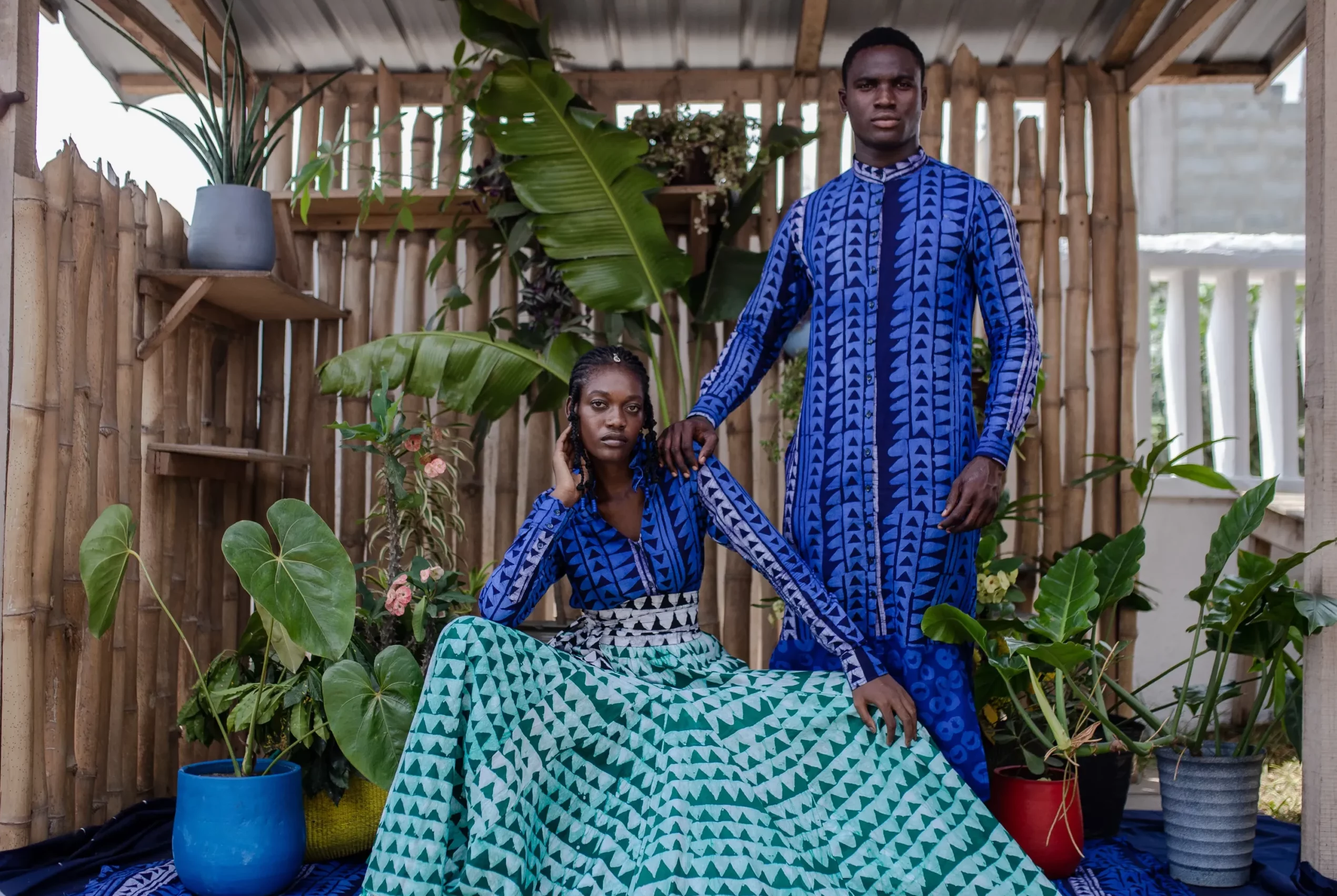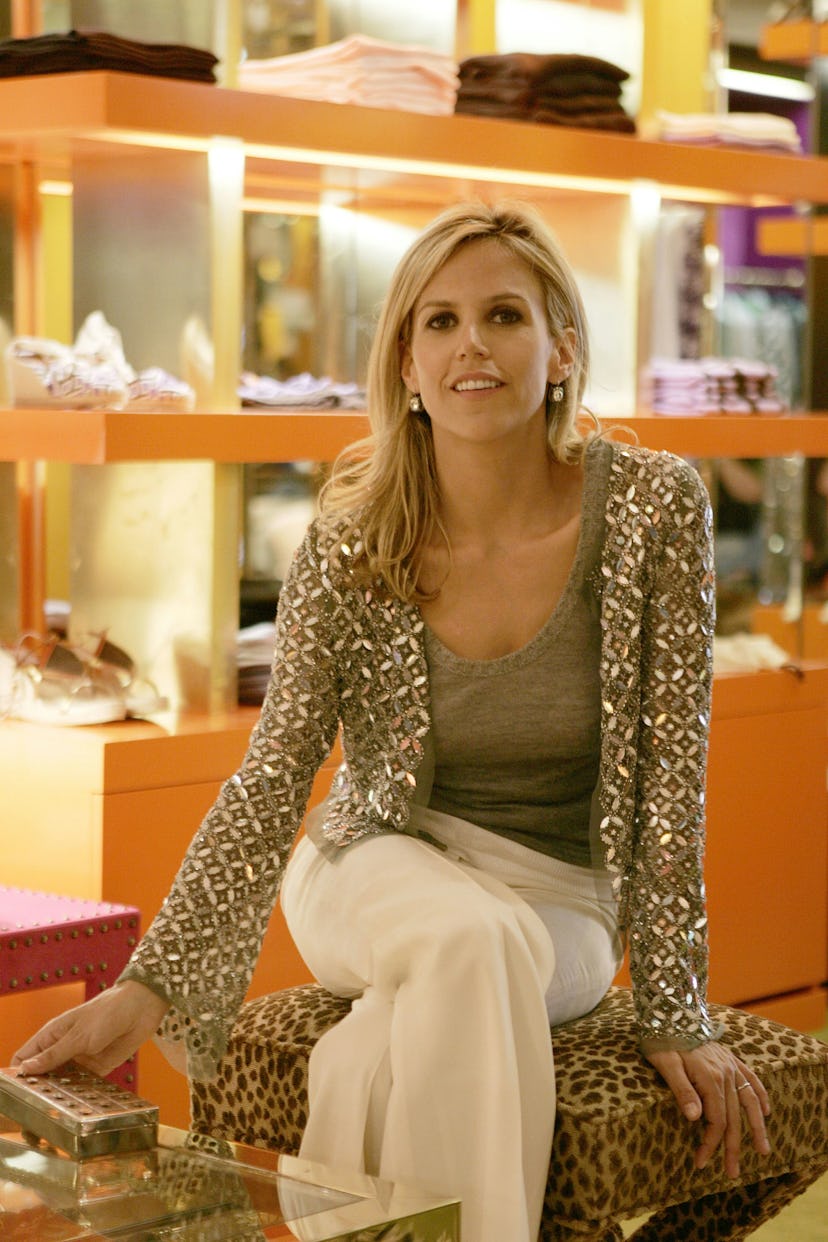What Makes Sedgars South Africa a Leader in Ethical Style?
What Makes Sedgars South Africa a Leader in Ethical Style?
Blog Article
The Impact of Lasting Practices on Modern Fashion Styles
Lasting techniques have actually improved modern-day style, driving a shift in the direction of environment-friendly materials and moral production. Designers now prefer natural cotton, recycled textiles, and innovative fabrics. Upcycling has transformed waste into distinct garments, while transparency in sourcing has actually ended up being important. This development shows an expanding awareness among customers concerning their buying choices. As the market adapts, brand-new trends arise that obstacle conventional aesthetics. What might the future hold for style in this framework?
The Surge of Eco-Friendly Products
Just how have eco-friendly products transformed the apparel industry? The appearance of eco-friendly materials has actually significantly reshaped style, driving brands to reevaluate their sourcing and production processes. These lasting options, including natural cotton, hemp, and recycled polyester, offer a decreased environmental footprint contrasted to traditional textiles. Designers are currently focusing on these materials, identifying that customers significantly favor brand names devoted to sustainability.This change has resulted in ingenious methods, where fashion residences experiment with eco-friendly textiles and all-natural dyes, boosting both aesthetic charm and eco-friendly duty. Furthermore, collaborations between designers and sustainability-focused business have increased the combination of eco-friendly products right into mainstream collections.As a result, the fashion business is experiencing a steady however extensive change, relocating towards a much more lasting future. This commitment not just mirrors evolving consumer worths but likewise demonstrates the capacity for fashion to lead in ecological stewardship.
Upcycling: Transforming Waste Into Fashion
Upcycling has become a transformative force in the apparel industry, transforming discarded materials right into preferable garments and accessories. This cutting-edge technique not only lowers waste yet also motivates imagination and originality among designers. By repurposing items such as old clothes, textile scraps, and even non-textile materials, upcycling develops unique items that tell a tale, reflecting private style and environmental consciousness.Many contemporary brand names and independent designers have embraced upcycling as a core practice, attracting consumers who value sustainability and originality. The procedure typically involves techniques like reconfiguration, embellishment, or jumble, enabling unlimited opportunities in design. Therefore, upcycled fashion reverberates with those seeking to make environmentally liable options while still revealing personal aesthetics.In significance, upcycling not just mitigates the environmental influence of fashion waste yet additionally fosters a brand-new society of technology and recognition for craftsmanship within the sector.
Ethical Production: Fair Labor and Openness
Honest manufacturing in fashion highlights the importance of reasonable incomes for employees, ensuring that laborers get just payment for their efforts. Transparency in supply chains is vital, enabling customers to understand the beginnings of their garments and the problems under which they are made. Additionally, moral sourcing techniques promote duty in picking materials, reinforcing the dedication to sustainability and social justice.
Fair Wages for Employees
While the apparel industry significantly welcomes lasting methods, making sure reasonable earnings for employees stays an essential component of moral production. Fair salaries not just encourage workers yet likewise improve the overall lifestyle for people in the supply chain. Several brand names are currently adopting policies that prioritize equitable settlement, recognizing that a sustainable future can not be constructed on exploitation. By devoting to reasonable pay, business cultivate commitment and boost productivity among their workers (Designer Store Sedgars). Furthermore, customers are ending up being extra conscious of labor problems and are increasingly requiring openness pertaining to workers' legal rights. Consequently, brand names that focus on fair wages are not just aligning with ethical criteria but are likewise placing themselves competitively in a market that values social duty
Openness in Supply Chains
The commitment to fair salaries is inherently connected to the broader concern of openness in supply chains within the fashion business. Openness warranties that consumers are notified regarding the beginnings of their garments and the conditions under which they are created. Brand names that prioritize openness frequently release comprehensive reports describing their supply chain procedures, labor methods, and sourcing of products. This openness cultivates trust and loyalty amongst customers who significantly require moral methods. Transparency assists to hold firms responsible for their labor practices, making it possible for scrutiny and encouraging enhancements. By exposing the intricacies of their supply chains, brands can contribute to a much more fair fashion ecological community, eventually advertising not just moral manufacturing but likewise lasting intake among their clients.

Moral Sourcing Practices
As consumers come to be extra conscious of the impact of their acquiring decisions, brands are increasingly embracing ethical sourcing techniques that focus on fair labor and ecological sustainability. These practices include making certain that employees receive fair earnings, safe working conditions, and are treated with dignity. Several style companies are moving far from unscrupulous labor techniques and are instead collaborating with providers who adhere to ethical requirements. Openness in sourcing additional enhances consumer trust fund, as brands disclose their supply chain methods, allowing customers to make educated options. This shift towards honest sourcing not just contributes to social duty yet also resonates with a growing group that values sustainability in vogue. Consequently, moral sourcing is becoming a specifying quality of contemporary fashion brands.
The Duty of Modern Technology in Sustainable Fashion
Although the fashion sector has long been related to waste and pollution, technology is significantly transforming it right into a more lasting sector. Innovations such as 3D printing make it possible for developers to develop garments with less product waste, while electronic material printing enables on-demand production, minimizing excess inventory. Additionally, improvements in reusing technologies are facilitating the repurposing navigate to this website of textiles, minimizing land fill contributions.In enhancement, information analytics and expert system assistance brand names forecast patterns a lot more properly, guaranteeing they create just what is needed. Blockchain innovation improves transparency in supply chains, permitting customers to trace the beginnings of their apparel and validate sustainable practices. Wearable technology is developing, promoting resilience and capability in style products. Through these technical developments, the garment industry is progressively adopting an extra circular economic situation model, cultivating sustainable methods that can redefine its ecological influence.

Conscious Consumerism: Moving Buyer Mindsets
Aware consumerism is improving the garment industry as purchasers increasingly focus on ethical fashion choices. This shift is driven by a need for openness, compelling brands to divulge their practices and supply chains. Therefore, brand loyalty is advancing, with consumers most likely to support those that align with their worths.
Honest Style Selections
Changing purchaser mindsets towards moral style options mirrors an expanding recognition of the effect of consumer habits on the setting and culture. Consumers are increasingly focusing on brands that emphasize ethical manufacturing practices, lasting products, and fair labor problems. This modification is fueled by a need to sustain business that line up with individual worths, promoting a much more responsible garment industry. Consequently, brand names are adjusting their approaches, integrating openness and sustainability right into their core objectives. Ethical fashion options not only challenge conventional retail methods but additionally motivate consumers to mirror on the lifecycle of their garments. This shift symbolizes a cumulative action in the direction of a more conscious approach to fashion, where the implications of acquisitions expand past simple aesthetics to incorporate broader ecological and social considerations.
Effect of Transparency

Brand Name Commitment Shift
What drives customers to remain devoted to brand names in today's fashion landscape? Significantly, sustainability plays a crucial duty. As understanding of ecological issues expands, consumers are being attracted towards brand names that demonstrate moral techniques and transparency. This shift towards aware click here for more info consumerism has actually brought about a reevaluation of traditional brand loyalty, where worths straighten extra closely with personal values. Brand names that focus on sustainable products, reasonable labor methods, and eco-friendly production methods are commonly rewarded with consumer commitment. This advancement is mirrored in acquiring decisions, as purchasers are more eager to support brands that contribute positively to society. As a result, sustainability has come to be not simply a marketing device, but a specifying element in developing long-term brand name connections with a more socially mindful and critical consumer base.
The Impact of Lasting Style on Fads
As consumers progressively prioritize sustainability, the fashion business is experiencing a significant improvement in patterns. This change has caused the rise of environment-friendly products, such Website as natural cotton, recycled polyester, and innovative fabrics acquired from lasting resources. Developers are significantly concentrated on producing versatile, resilient garments that encourage conscious intake, relocating far from quick style's fleeting styles.Moreover, moral practices are coming to be a trademark of brand identity, with lots of business highlighting their dedication to fair labor and ecological stewardship. The influence of lasting style is additionally obvious in the appeal of second hand purchasing and garments swaps, decreasing and advertising a round economic situation waste.Fashion programs and campaigns now typically include lasting collections, highlighting the aesthetic charm of eco-conscious choices. Overall, the impact of lasting fashion on patterns shows a wider societal shift towards accountable consumerism, forming the future of the market in extensive ways.
Future Developments in Eco-Conscious Style
The advancement of lasting fashion patterns lays the foundation for future advancements in eco-conscious layout. As customers progressively prioritize ecological obligation, designers are exploring innovative materials and methods. Eco-friendly fabrics, such as mycelium and algae-based fabrics, are gaining traction, assuring to lower waste and reliance on petroleum-based fibers.Moreover, improvements in technology are leading the way for cutting-edge manufacturing techniques. 3D printing, for circumstances, enables on-demand manufacturing, reducing excess stock and resource usage. Round fashion versions are additionally arising, stressing recycling and upcycling, making it possible for garments to have extended life cycles.Collaboration in between brand names and innovation business is important for these developments. By leveraging information analytics and fabricated intelligence, developers can create extra lasting supply chains and minimize their carbon footprints. As eco-conscious practices remain to progress, they basically transform the fashion landscape, pushing the boundaries of imagination while guarding the world.
Regularly Asked Concerns
Just How Can I Identify Sustainable Style Brands When Shopping?
To recognize sustainable style brands while purchasing, one should search for certifications, inspect products, assess manufacturing transparency, and research brand values. Sedgars South Africa. Involving with consumer testimonials and sustainability reports can even more assist enlightened buying decisions
Are Second-Hand Clothes Thought About Lasting Style?
Second-hand clothes are usually concerned as lasting fashion due to their function in reducing waste and expanding the lifecycle of garments. By purchasing secondhand products, customers add to a much more environmentally friendly garments economic situation.
What Is the Environmental Impact of Rapid Fashion?
The environmental effect of fast style is significant, adding to contamination, excessive waste, and resource exhaustion. The industry's rapid production cycles often prioritize revenue over ecological sustainability, aggravating environment modification and harming communities worldwide.
Just How Do Lasting Practices Affect Style Pricing?
Sustainable practices commonly bring about greater manufacturing costs because of honest sourcing and eco-friendly products. Sedgars. Consequently, fashion rates may raise, mirroring the investment in ecological obligation and reasonable labor practices, which can impact consumer acquiring choices
Can Sustainable Fashion Be Fashionable and Trendy?
The concern of whether lasting style can be trendy and elegant frequently arises. Numerous designers now blend green materials with cutting-edge designs, verifying that sustainability and contemporary aesthetic appeals can coexist, appealing to a fashion-conscious target market. Lasting practices have actually reshaped contemporary fashion, driving a shift in the direction of eco-friendly materials and moral manufacturing. While the style sector significantly welcomes lasting practices, making certain fair salaries for employees continues to be a critical part of honest production. Mindful consumerism is improving the fashion sector as buyers increasingly prioritize honest style options. The influence of lasting style is also obvious in the appeal of second hand buying and clothes swaps, promoting a circular economy and minimizing waste.Fashion programs and campaigns now usually include lasting collections, emphasizing the aesthetic appeal of eco-conscious options. To determine lasting style brands while buying, one should look for qualifications, scrutinize products, assess manufacturing transparency, and research brand values.
Report this page